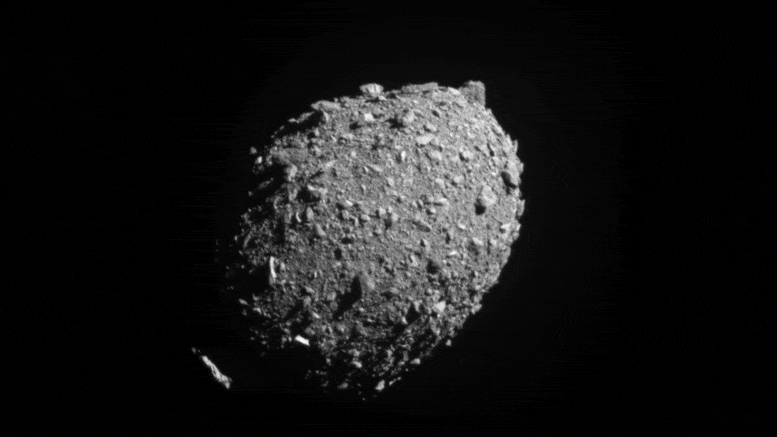THIS ONE IS FOR THE DINOSAURS
The final images leading up to the DART spacecraft’s intentional collision with asteroid Dimorphos.
Credit: NASA/Johns Hopkins APL
Portfolio Company News
Lynk
Lynk will test the ability to send a 5G signal from a satellite launching in December to standard mobile devices. Funding for the test came from an undisclosed partner. While the test will demonstrate 5G connectivity from space, most MNOs will be at 4G for the next few years. Charles Miller, Lynk CEO, said “I suspect Lynk will be ready to provide 5G services well before MNOs want to make the transition from 4G to 5G.”
Umbra
The National Reconnaissance Office awarded study contracts for space-based radio frequency (RF) data to six companies on Wednesday.
General Space News
NASA and SpaceX will study a proposal by SpaceX and Jared Isaacman's Polaris Project to re-boost and possibly service the Hubble Space Telescope at no cost to NASA. At the hastily put together briefing earlier this week, Isaacman said, “We’d be taking advantage of everything that’s being developed within the commercial space industry to potentially execute on a mission, should the study warrant it, with little or no potential cost to the government.”
In May NASA requested public comment on its “Moon to Mars Objectives” which left many yawning. In a subsequent meeting with various groups who responded to the RFI, NASA was roundly criticized for reverting to “Flags and Footprints” missions and doing nothing to encourage or enable the development of space. There were reports that NASA even insisted that it didn’t know what the word “development” meant. Now, in one of those rare cases when a Federal Agency actually listens, NASA has updated its list of objectives which now includes a set of overarching ‘tenets’, one of which is “foster the expansion of the economic sphere beyond Earth orbit to support U.S. industry and innovation.”
Evidence that there is a disconnect between Congress and the White House on where new space regulations continue to grow. The leadership of the House Science Committee asked the FCC to defer consideration of a new orbital debris rule which the FCC summarily ignored the next day when the FCC commissioners approved the new five-year deorbit rule for low Earth orbit satellites. Ezinne Uzo-Okoro, assistant director for space policy at OSTP, stated that the FCC’s decision didn’t necessarily conflict with an ongoing review of space debris prevention and mitigation. It appears that the White House is willing to move forward without regard to who the regulatory agency is, what the process looks like, or which Congressional toes get stepped on.
With the Space Launch System back in the Vehicle Assembly Building, NASA is studying when it be ready for another launch attempt. The current suggestion is late November which is also when Elon Musk recently suggested the first Starship orbital test. November may be a very eventful month for very large rockets.
Other Space News
SpaceX says it will "activate" Starlink service in Iran in response to protests in the country.
Weather will again delay the launch of a NASA commercial crew mission to the ISS.
Astroscale opened a satellite production facility in the UK, dubbed Zeus.
Most of the tracked debris from last year's Russian ASAT test has since reentered.
Firefly Aerospace aborted a launch of its Alpha rocket just as its engines ignited early Friday.
NASA's DART spacecraft successfully collided with a small asteroid Monday night.

